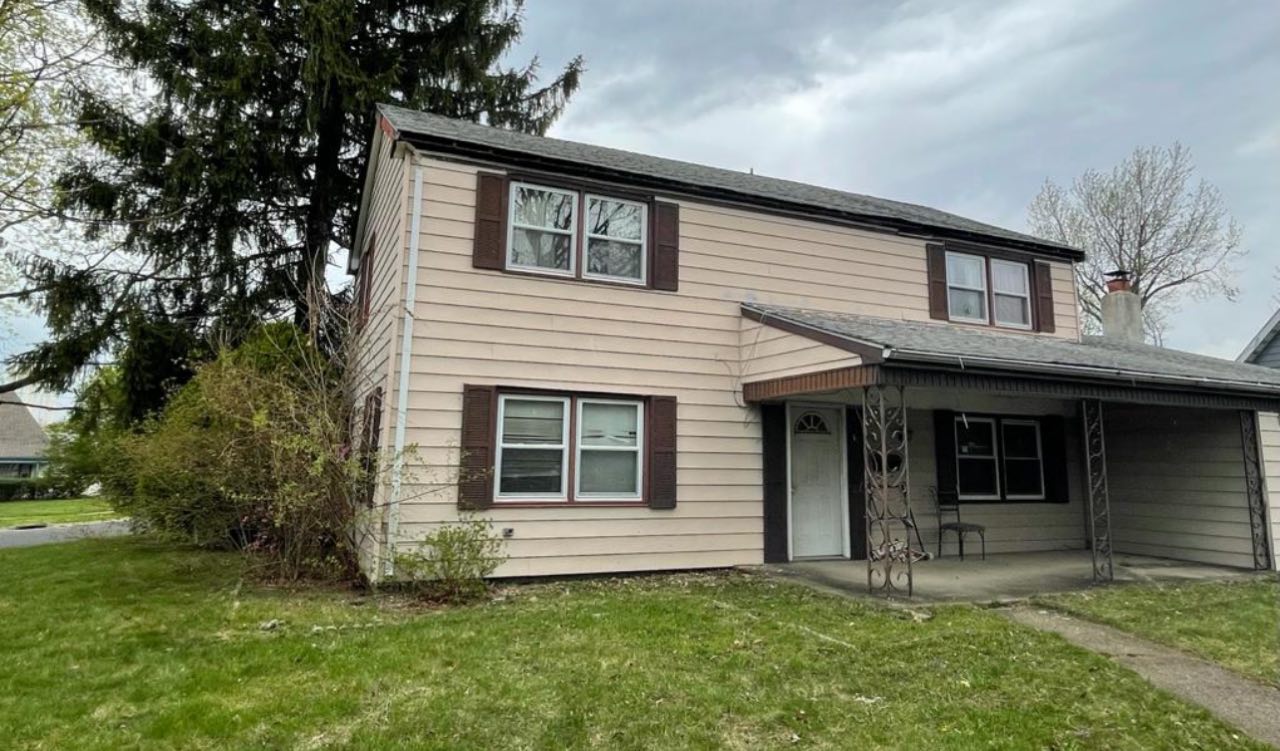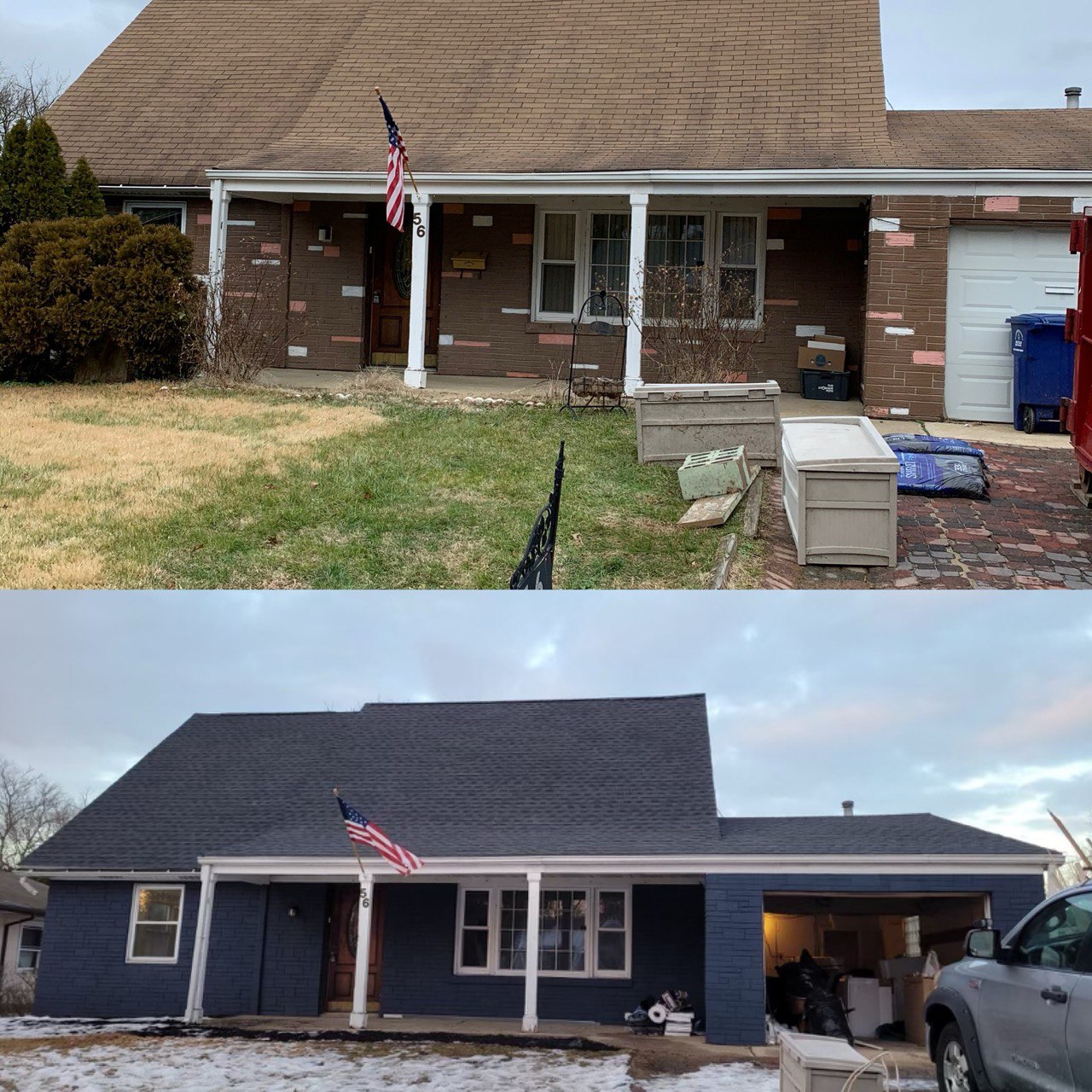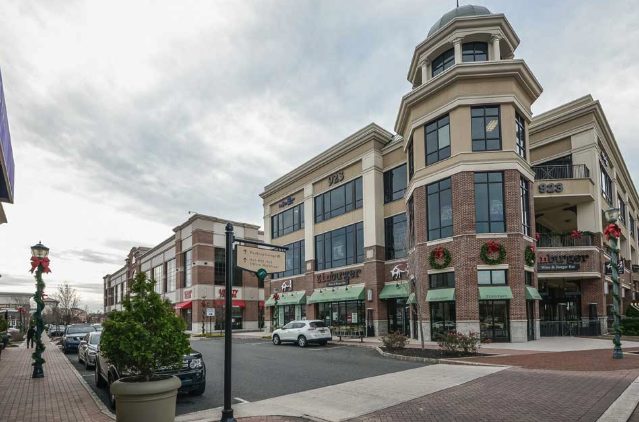Mortgage rates play a crucial role in the real estate market, impacting homebuyers, sellers, and investors alike. In New Jersey, where the market is thriving, monitoring mortgage rate trends is of utmost importance.
For Homebuyers:
-
Mortgage rates directly affect the affordability of homes.
-
Low rates allow buyers to secure loans at more favorable terms, resulting in lower monthly mortgage payments and increased buying power.
-
High rates may make potential buyers hesitant, potentially leading to slower sales.
For Sellers:
-
Sellers should pay attention to prevailing mortgage rates and adjust their pricing strategies accordingly.
-
Addressing potential buyers’ concerns regarding rising rates is crucial in today’s market.
For Investors:
-
Real estate investors in New Jersey should carefully assess the profitability of their investments under different interest rate scenarios.
-
Diversifying their portfolios can help mitigate risks associated with fluctuating rates.
With the real estate market constantly evolving, staying informed about mortgage rate trends is key. By doing so, homebuyers, sellers, and investors can make informed decisions that align with their goals. In the following sections, we will delve deeper into the impact of mortgage rates on the New Jersey real estate market, exploring how they influence home prices, affordability, and overall market dynamics. Join us as we navigate through this crucial aspect of the real estate landscape.
Understanding Mortgage Rates and Their Significance in the Real Estate Market
Mortgage rates play a crucial role in the real estate market, impacting both homebuyers and sellers. To fully grasp their significance, it’s important to first define what mortgage rates are and how they function in determining the cost of borrowing for home purchases.
Simply put, mortgage rates refer to the interest rates charged by lenders for home loans. They are influenced by various factors such as the overall state of the economy, inflation rates, and the actions of the Federal Reserve. When you apply for a mortgage, the interest rate you are offered will determine the amount of interest you’ll have to pay over the life of the loan.
The impact of mortgage rates on the real estate market is twofold:
- Mortgage rates have a direct effect on the affordability of homes for buyers. When mortgage rates are low, buyers can secure loans at more favorable terms, resulting in lower monthly mortgage payments and increased buying power. On the other hand, when mortgage rates are high, potential buyers may be hesitant to make a purchase, resulting in slower sales.
- Mortgage rates also influence the relationship between mortgage rates and home prices. Lower mortgage rates can lead to increased demand for homes, as it becomes more affordable for buyers to finance a home purchase. This increased demand can drive up home prices. Conversely, higher mortgage rates can decrease affordability and demand, potentially leading to a decrease in home prices.
Monitoring mortgage rate trends is crucial for both homebuyers and sellers in New Jersey. Homebuyers should keep a close eye on mortgage rates to take advantage of favorable conditions and maximize their buying power. On the other hand, sellers should adjust their pricing strategies based on prevailing mortgage rates and address potential buyers’ concerns regarding rising rates.
Exploring the Current Mortgage Rate Landscape in New Jersey
When it comes to buying a home, one of the most important factors to consider is the current mortgage rates. These rates determine the cost of borrowing money for a home purchase and can have a significant
impact on the real estate
market in New Jersey.
Average Mortgage Rates in New Jersey
In New Jersey, the average mortgage rates tend to be slightly higher compared to the national averages. According to recent data, the average 30-year fixed mortgage rate in New Jersey is around 3.5% , while the national average is around 3.2% . This means that borrowers in New Jersey may have slightly higher monthly mortgage payments compared to borrowers in other states. However, it’s important to note that mortgage rates can vary depending on factors such as credit score, down payment amount, and loan term.
Trends and Fluctuations in Mortgage Rates
When looking at the trends and fluctuations in mortgage rates in New Jersey, it’s clear that they can be quite volatile. Mortgage rates are influenced by various factors such as economic indicators, inflation, and the Federal Reserve’s monetary policy. As a result, they can change frequently and sometimes even on a daily basis. It’s important for homebuyers and sellers in New Jersey to stay informed about these rate changes, as they can have a significant impact on the affordability of homes and the overall demand in the market.
Potential Impact on the Real Estate Market
The potential impact of mortgage rate changes on the real estate market in New Jersey is significant. When mortgage rates are low, it becomes more affordable for buyers to finance a home purchase. This can lead to increased demand and higher home prices. On the other hand, when mortgage rates are high, potential buyers may be hesitant to make a purchase, resulting in slower sales and potentially lower home prices. Therefore, monitoring mortgage rate trends is crucial for both homebuyers and sellers in New Jersey.
The current mortgage rate landscape in New Jersey plays a crucial role in the real estate market. The average mortgage rates in the state tend to be slightly higher compared to national averages, and they can fluctuate frequently. These rate changes can have a significant impact on the affordability of homes and the overall demand in the market. Therefore, it’s important for homebuyers and sellers in New Jersey to stay informed about the mortgage rate trends and adjust their strategies accordingly. Whether you’re looking to buy or sell a home in New Jersey, understanding the current mortgage rate landscape is essential for making informed decisions.
Introduction
Exploring the historical fluctuations in mortgage rates and their effects on the housing market in New Jersey provides valuable insights into the dynamics
of the real estate industry
. By analyzing past mortgage rate trends, we can gain a better understanding of future market conditions and make informed decisions as homebuyers or sellers.
Impact on Affordability
Mortgage rates, which refer to the interest rates charged by lenders for home loans, play a significant role in the affordability of homes. When mortgage rates are low, it becomes more affordable for buyers to finance a home purchase, leading to increased demand and higher home prices. Conversely, when mortgage rates are high, potential buyers may be hesitant to make a purchase, resulting in slower sales and potentially lower home prices.
Implications for Homebuyers and Sellers
Monitoring mortgage rate trends is crucial for both homebuyers and sellers in New Jersey. As a homebuyer, being aware of historical trends can help you time your purchase to take advantage of lower rates and maximize your buying power. When mortgage rates are low, buyers can secure loans at more favorable terms, resulting in lower monthly mortgage payments. On the other hand, as a home seller, it’s essential to adjust pricing strategies based on prevailing mortgage rates and address potential buyers’ concerns regarding rising rates.
Influence on Inventory Levels
In addition to their impact on home prices and sales, mortgage rates also influence inventory levels. When mortgage rates are low, homeowners may be less inclined to sell their homes, as they can enjoy the benefits of low monthly mortgage payments. This can result in lower inventory levels and increased competition among buyers. Conversely, when mortgage rates are high, homeowners may be more motivated to sell, leading to a larger inventory of homes on the market.
Predicting Future Market Conditions
Analyzing the correlation between mortgage rates and home sales, prices, and inventory levels can help us make predictions about future market conditions. For example, if mortgage rates are projected to rise, we can anticipate a potential slowdown in home sales and a stabilization or decrease in home prices. Conversely, if mortgage rates are expected to decrease, we may see an increase in home sales and a potential uptick in prices.
Historical trends in mortgage rates provide valuable insights into the housing market in New Jersey. By understanding the relationship between mortgage rates and home sales, prices, and inventory levels, both homebuyers and sellers can make informed decisions and navigate the market effectively. Whether you’re looking to buy or sell a home, staying informed about mortgage rate trends is essential for maximizing your opportunities and achieving your real estate goals.
The Impact of Mortgage Rates on Home Buyers in New Jersey
Mortgage rates play a significant role in the affordability of homes for buyers. When mortgage rates are low, it becomes more affordable for buyers to finance a home purchase. On the other hand, high mortgage rates can decrease affordability and make it more challenging for buyers to qualify for a loan. Understanding
the impact of mortgage rates
on buying power and monthly mortgage payments is crucial for home buyers in New Jersey.
Low Mortgage Rates: Increasing Buying Power
Low mortgage rates can have a positive effect on buying power. When mortgage rates are low, buyers can secure loans at more favorable terms, resulting in lower monthly mortgage payments. This means that buyers can potentially afford a more expensive home or have more money available for other expenses. For example, a 1% decrease in mortgage rates can lead to significant savings over the life of a mortgage. This increased buying power can make a difference when it comes to finding and purchasing a dream home.
High Mortgage Rates: Decreasing Buying Power
Conversely, high mortgage rates can have a negative impact on buying power. When mortgage rates are high, potential buyers may be hesitant to make a purchase, resulting in slower sales. Higher mortgage rates can also lead to higher monthly mortgage payments, making it more challenging for buyers to qualify for a loan. It’s essential for buyers to carefully consider their budget and financial situation when mortgage rates are on the rise.
Concerns and Considerations
In a changing interest rate environment, buyers should be aware of potential concerns and considerations. One concern is the possibility of rising interest rates in the future. Buyers should consider the potential impact of rising rates on their monthly mortgage payments and overall affordability. It may be wise to consult with a mortgage professional to understand how potential rate increases could affect their specific situation.
Another consideration for buyers is the importance of timing their purchase in relation to mortgage rate trends. Monitoring mortgage rate trends can help buyers determine if it’s a good time to enter the market or if they should wait for rates to decrease. However, it’s important to note that predicting interest rate movements can be challenging, and buyers should also consider other factors such as housing inventory and market conditions.
Mortgage rates have a significant impact on home buyers in New Jersey. Low mortgage rates can increase buying power and make homeownership more affordable, while high mortgage rates can have the opposite effect. Buyers should carefully consider the impact of mortgage rates on their budget and financial situation, as well as stay informed about market trends. By understanding how mortgage rates influence affordability and taking into account potential concerns and considerations, buyers can make informed decisions when it comes to purchasing a home.
Improving Readability and Flow
As a skilled blog editor, my primary goal is to enhance the readability and flow of the content. I achieve this by organizing information in a way that is easy for readers to understand and engage with.
Styles for Organizing Information
When it comes to organizing information, I utilize various styles to ensure clarity and coherence:
- Listicles
- Bullet points
- Paragraph style
- Tables to compare
- Relevant H tags for headings and subheadings to SEO optimize HTML
Utilizing Heading Tags and Formatting
In order to optimize the HTML for search engines, I use relevant H tags for headings and subheadings. This helps improve the overall structure and readability of the content.
Additionally, I make use of bold and italicized key phrases to draw attention to important information.
Comparative Pieces
When it is necessary to compare information, I present it in a tabular format. This allows readers to easily compare and contrast different elements.
Heading and Subheading Capitalization
For headings and subheadings, I use title case to ensure consistency and professionalism in the content.
Real Estate Investment Strategies in New Jersey: The Impact of Mortgage Rates
Real estate investors in New Jersey face unique considerations when it comes to their investment strategies. One crucial factor that can significantly impact these strategies is mortgage rates. Understanding how mortgage rates can affect real estate investments is essential for making informed decisions and maximizing profitability.
What are Mortgage Rates?
Mortgage rates refer to the interest rates charged by lenders for home loans. These rates determine the cost of borrowing money for a home purchase. When mortgage rates are low, it becomes more affordable for buyers to finance a home purchase. This can lead to increased demand and higher home prices. On the other hand, higher mortgage rates can decrease affordability and demand, potentially resulting in a decrease in home prices.
Impact of Mortgage Rates on Real Estate Investments
For real estate investors, monitoring mortgage rate trends is crucial. Different interest rate scenarios can have varying effects on the profitability of investments.
- In a low-interest-rate environment, investors may find opportunities to secure loans at more favorable terms, resulting in lower monthly mortgage payments and increased buying power. This can make it an opportune time to invest in properties.
- However, in a high-interest-rate environment, potential buyers may be hesitant to make a purchase, leading to slower sales. As an investor, it is essential to consider the potential impact of rising mortgage rates on the demand for rental properties and the ability to attract tenants. It may be necessary to adjust investment strategies and pricing strategies accordingly.
Diversification as a Risk Mitigation Strategy
Diversification is another key consideration for real estate investors in response to changing mortgage rates. By diversifying their investment portfolios, investors can mitigate risks associated with fluctuations in interest rates. This can involve investing in different types of properties, such as residential, commercial, or multifamily, or diversifying geographically across different areas within New Jersey.
Alternative Investment Options
Additionally, real estate investors can consider alternative investment options, such as real estate investment trusts (REITs) or real estate crowdfunding platforms. These can provide exposure to a broader real estate market while potentially offering more flexibility and liquidity compared to direct property ownership.
Conclusion
In conclusion, mortgage rates play a significant role in shaping real estate investment strategies in New Jersey. Investors must stay informed about mortgage rate trends and their potential impact on the profitability of investments. Diversification is key to mitigating risks associated with changing interest rates. By considering these factors and adapting their strategies accordingly, real estate investors can navigate the ever-changing market and maximize their investment returns.
The Impact of Mortgage Rates on the New Jersey Real Estate Market
Mortgage rates play a crucial role in the New Jersey real estate market. These rates determine the affordability of homes for buyers and can impact both demand and pricing.
How Mortgage Rates Affect Buyers
- Low mortgage rates allow buyers to secure loans at more favorable terms
- Lower rates result in lower monthly mortgage payments
- Increased buying power for buyers
How Mortgage Rates Affect Sellers
Sellers should adjust their pricing strategies based on prevailing mortgage rates. Addressing potential buyers’ concerns regarding rising rates is crucial.
Staying Informed about Mortgage Rate Trends
Monitoring mortgage rate trends is essential for both homebuyers and sellers in New Jersey. By staying informed, buyers can make informed decisions about the timing of their purchase and take advantage of favorable market conditions. Sellers can adjust their pricing strategies accordingly.
Resources for Navigating Mortgage Rate Impact
Readers should take advantage of available resources to navigate the impact of mortgage rates on their real estate goals:
- Professional realtors, like the experts at Savannah Properties, can provide accurate home valuations considering factors such as location and current market trends
- Sellers have the option to sell directly to companies like Savannah Properties, saving time and money without the hassle of waiting periods, commissions, or repair costs
Making Informed Decisions in a Changing Market
The real estate market is constantly changing, so being aware of mortgage rate trends is crucial for making informed decisions. Buyers and sellers can benefit from staying informed and leveraging the expertise of professionals in the New Jersey real estate market.
Consider Savannah Properties for Your Real Estate Goals
If you’re looking to sell your home in New Jersey, consider reaching out to Savannah Properties to explore your options and get a fair offer. Visit our website here to learn more about how we can help you achieve your real estate goals.







